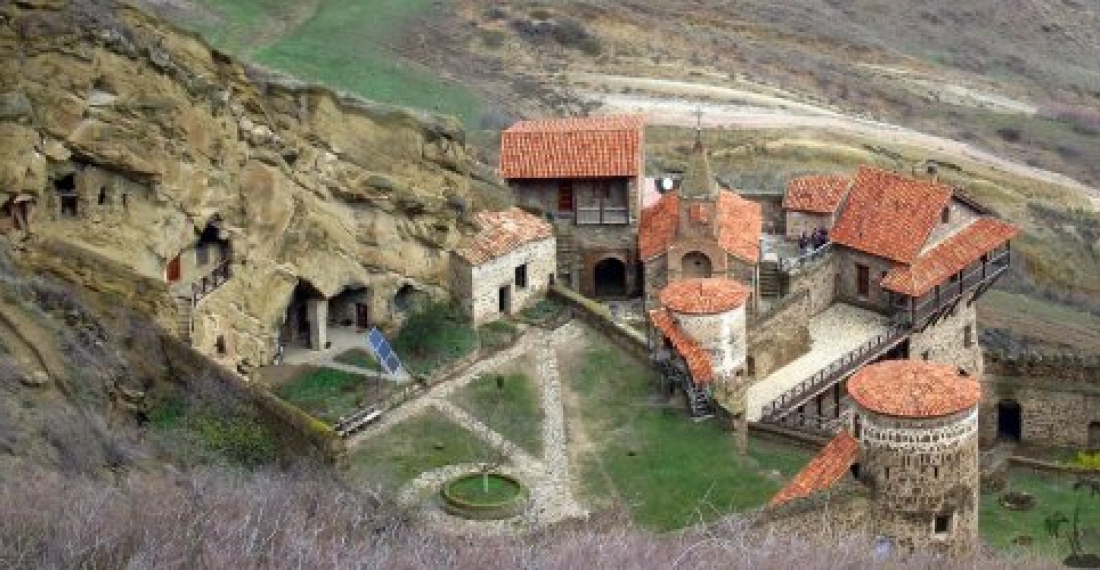Комментарий
В понедельник, 15 июля, в непосредственной близости от монастыря Давид Гареджи, который находится на спорном участке грузино-азербайджанской границы, произошел еще один инцидент. Монастырь превратился из места поклонения в горячую точку, где грузинские религиозные фанатики пытались заявить о своей претензии на эту землю, а азербайджанские пограничники их остановили.
Эта история продолжается с момента распада СССР в 1991 году, когда несколько неопределенное разграничение границ между различными советскими республиками стало давать о себе знать. С тех пор Грузия и Азербайджан работали над этим вопросом, и большая часть границы между двумя странами теперь определена и согласована. Некоторые места, такие как территория вокруг монастыря, остаются спорными.
Грузино-азербайджанские отношения традиционно были теплыми, иногда даже образцовыми. Но в этом пограничном споре есть все, что может испортить отношения. И кажется, что есть те, кто хочет это сделать.
После вчерашнего инцидента и Грузия, и Азербайджан выступили с заявлениями, в которых подчеркивалось грузино-азербайджанское стратегическое партнерство и отношения. Оба правительства хотят решить вопрос путем переговоров. Тем не менее, МИД Азербайджана счел, что ему необходимо еще больше драматизировать манеры, формально вызвав посла Грузии. Заявление грузинского министерства выглядит более примирительным, с призывом к сдержанности.
Весьма вероятно, что радикалы в Грузии пытаются превратить проблему Давида Гареджи в кризис. Если это так, их нужно осудить. Однако также возможно, что некоторые официальные лица в Азербайджане могут слишком остро реагировать. Их также нужно сдерживать. И Азербайджан, и Грузия должны уважать границы, которые они уже согласовали, и действовать быстро, но решительно, чтобы решить то, что не удалось пока еще. На Южном Кавказе уже слишком много споров и проблем. Спор между Азербайджаном и Грузией не является ни необходимостью, ни неизбежностью, и он не входит в чьи-либо интересы.
источник: commonspace.eu
фото: Комплекс монастыря Давид Гареджи на спорном участке азербайджано-грузинской границы






